Doberman Pinscher
Doberman is a loyal, alert, and fearless dog breed, and it is one of the world's most famous dogs. Although they are one of the best guard dogs in the world, they are highly adaptable and can fit perfectly into a family life, enjoying being involved in all family activities.
If they are raised and treated properly they will become great family members. Other names for this dog breed are Doberman Pinscher and Dobie. In the past, these dogs were raised primarily to watch and guard dogs, but Doberman breeders started to breed dogs to be even-tempered because they don’t need to be taught how to be good protectors.
After all, that is their natural trait that is embedded in the psyche of the breed. Although they can be good family dogs and can get with everyone if taught so, don't get this dog primarily because of his fierce and powerful looks.
If you want a well-behaved dog, you will need to put in the work - socialize your dog from the start, give him plenty of mental and physical exercise, and you won't regret it because you will end up with a great family member who will protect you by any means if needed.
FUN FACT: Search and rescue Dobies were helping after the 9/11 attack on the World Trade Center.

Height:
24-28 in (63-72 cm)

Weight:
70–99 lb (32–45 kg)

Origin:
Germany

Life Expectancy:
10-12 years
Dog Breed Characteristics
This is a popular people-oriented dog breed known for its intelligence and loyalty. They have a sleek and muscular body. They have a long head with well-developed nostrils, a strong muzzle, and a strong lower jaw. Their eyes are almond-shaped and dark. The Doberman’s ears are often cropped, and the tail is, in many cases, docked.
Their coat is smooth and short and requires minimal grooming and brushing. By FCI, they are bred in two colors: black or brown with red dust, both with tan markings, and by AKC, standard coat colors come in four variants: black and rust, blue and rust, fawn and rust, and red and rust.
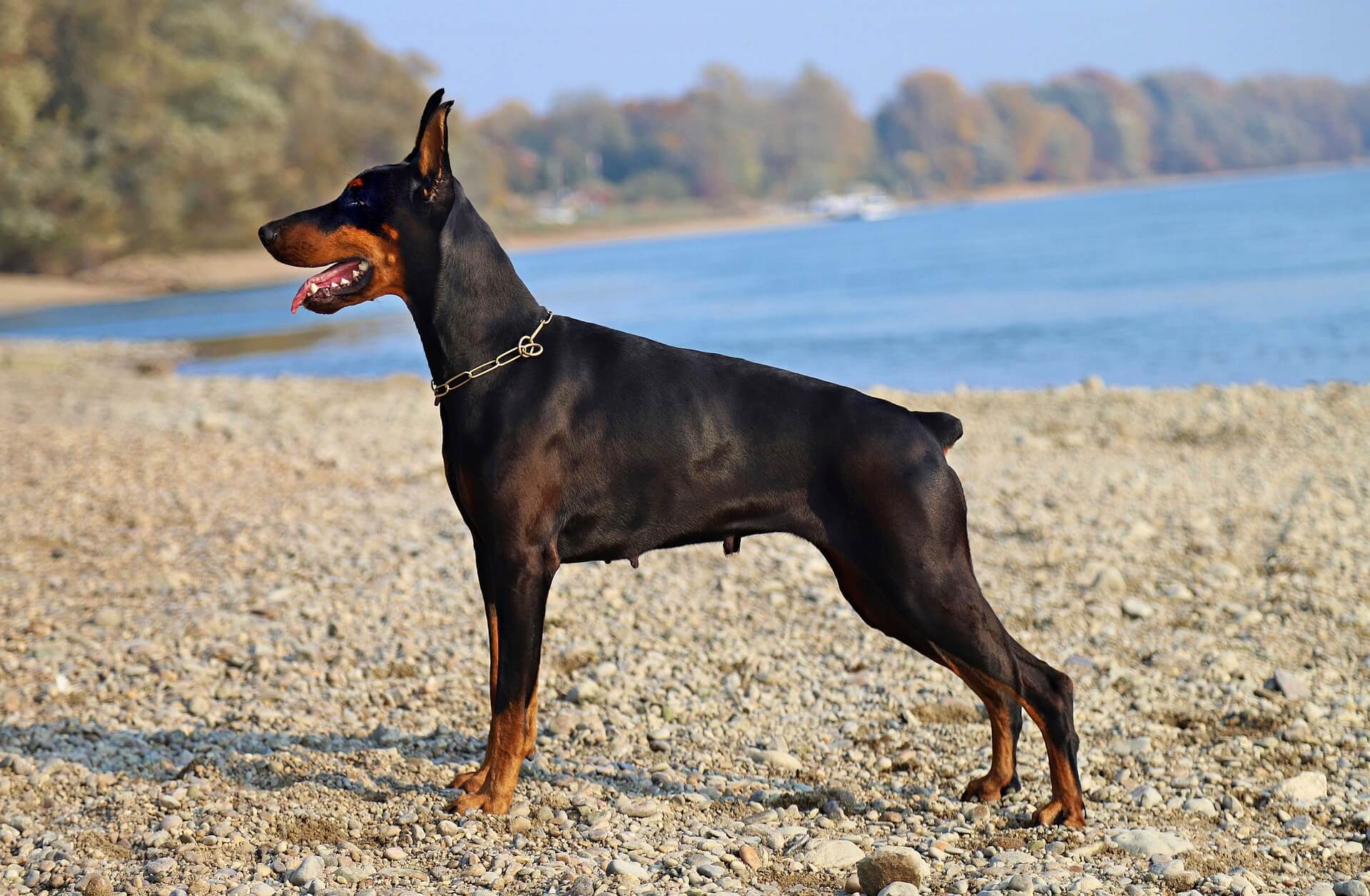
Dobie grooming
Dobies have a short coat that lies close to the skin, and they can have an undercoat around their neck. They are a very clean dog breed that doesn’t require much grooming. Don’t get fooled by his short hair because these dogs also shed their coat.
To keep your dog's coat shiny and healthy, you should regularly brush him. You should only bathe him when he rolls into something, and it's extremely dirty. Frequent and regular bathing is not necessary for these dogs. Trim his nails monthly and brush his teeth regularly to remove tartar buildup and bacteria.
The more times you brush his teeth, the better it is for the prevention of gum disease and bad breath. Check his ears weekly for any signs of redness and wax buildup, which can indicate the infection. While you are checking his ears, clean them with the cotton ball dipped into a ph-balanced ear cleaner to prevent any unwanted infections.
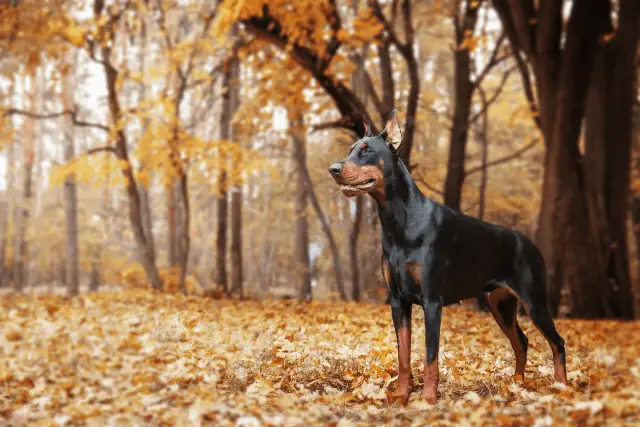
You shouldn't insert anything into his ear canals – you just need to clean the outer ear. If you are not sure how to properly clean them without hurting the dog, ask your veterinarian for help to avoid any damage to dogs' ears.
Ear cropping
Because of the purpose of being guard dogs that they were bred for earlier, Dobermans needed to be ready to engage in a fight. The tail and ears were their weak spots that could be easily torn and broken, so the owners started removing them.
Today, the tail is mostly docked because their tail is very thin and can break easily. The ears are cropped to ensure air flow through the ear canals and prevent infections, which is impossible to ensure with floppy ears. Today, this practice is considered cruel and is banned in many countries.
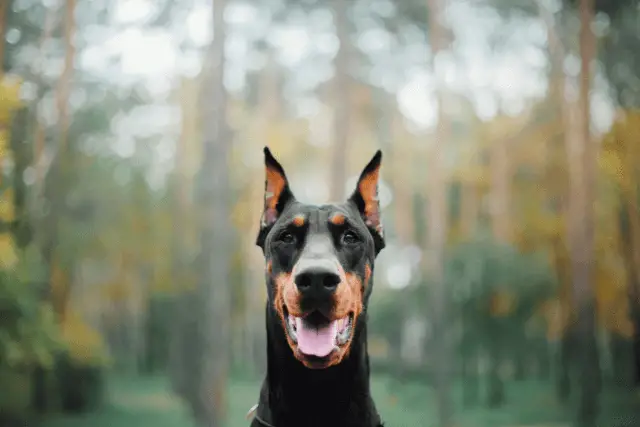
Energy level
He is an extremely energetic and athletic dog that needs daily exercise, both physical and mental. If they are not exercised enough, they can start misbehaving and can even become aggressive. The Doberman requires a strong pack leader who will keep him busy and work with him.
This dog needs consistent training and early socialization. Firm training is necessary to establish leadership and achieve obedience. There is no need for special guard training, they are natural protectors, and you can count on them to protect you when they sense you are in danger.
They will enjoy long walks, hikes, bike rides, etc., and they learn new things very fast, so you need to keep the training session interesting.
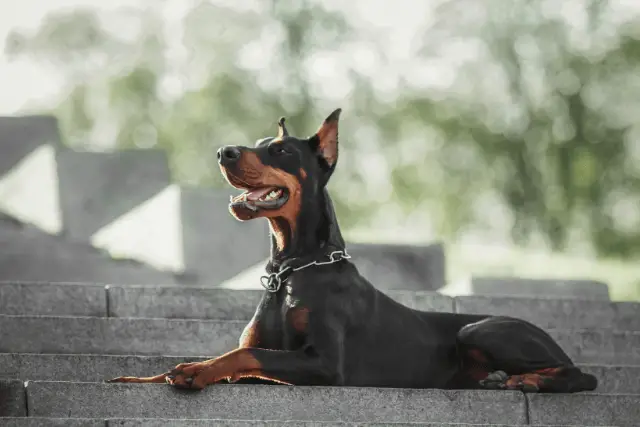
Intelligence and socialization
Besides being extremely active, Dobermans are also very intelligent dogs. They are loyal, trustworthy, and protective of their family and home. They thrive on human attention, love to be a part of a family, and should never be left alone for too long. They are awesome with children and the family’s friends. The Doberman is sensitive to cold weather and is created to live inside with its family.
Their temperament is affected by numerous factors, including training, hereditary, and socialization. Socialization is necessary with this dog breed if you don’t want to end up with an aggressive dog that doesn’t listen to you. Puppy training classes are also recommended.
If they are not raised properly, they can become destructive and pushy. If it's possible, before buying a dog, always ask to see the puppy's parents because meeting them can be helpful in evaluating what will be the temperament of the puppies when they grow up.
No matter what, you need to expose your dog to many different people, sights, and sounds while he is young so you can be sure that he will develop into a well-rounded dog. If they are raised properly they will listen to you in every way.
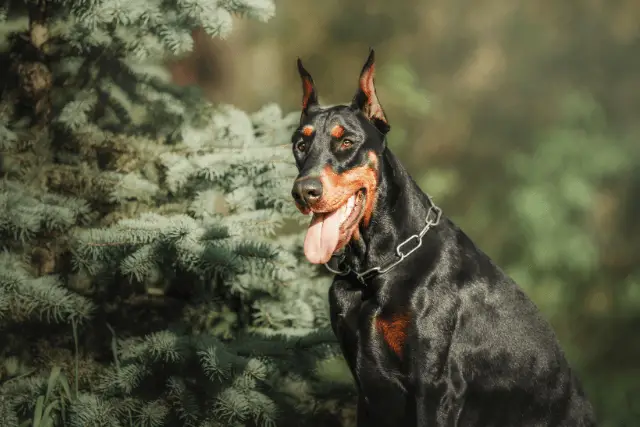
You shouldn’t allow this dog to be an alpha of the pack, and you will do so with constant training and obedience from the puppy age. These dogs should not be neglected because the consequences can be dangerous.
Aggression
These dogs are bred to be fearless guardians, and no matter how good they are, they will always be protective of you and your family. Some owners say that this dog needs to know where every member of the family is located in the house at every moment, so he will walk through the house constantly to check on everybody.
This dog breed will not attack if he does not have a legit reason to do so. If they are well-trained, Dobermans will obey your commands regardless of their fear or confusion.
Raise them right from the start and set yourself as alpha. They will be excellent dogs who will listen to your, so you don’t have to worry that they will be aggressive or that they will attack someone without reason.
Doberman and kids
Well-raised Doberman is an excellent family dog. He will get along well and be very protective of children in their families. If the kids respect this dog, he will do the same in return. That is why it is very important to teach your kids how to play with the dog so you wouldn't end up in some bad and unwanted situations.
If they learn how to care for the dog, you won't have to worry that they wouldn’t get along, but you will need to supervise every playtime between your dog and kids mostly because of his large size; he could easily knock down smaller children without wanting to.
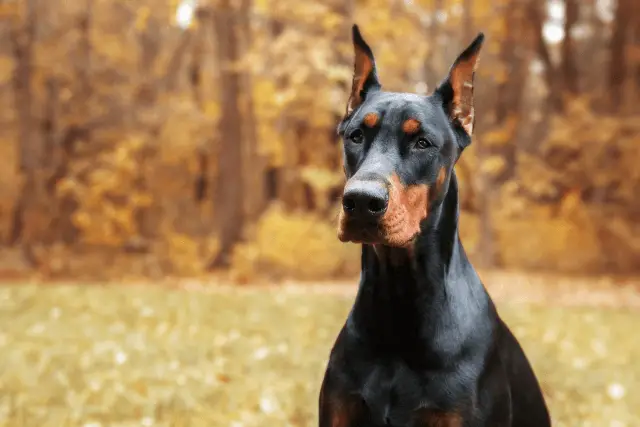
Dobbie and other animals
If they are raised with other pets and animals, Dobermans can get along with them. If properly socialized, they can also get along well with other dogs he doesn’t know, but they can be very aloof toward the dogs outside their family if they will consider them as a threat to their family. You should be careful when he is around smaller animals that he doesn’t know because of his high prey drive.
This breed matures very slowly; it takes them three to four years to be considered adults.
FUN FACT: Doberman Pinschers make excellent guard dogs, police and military dogs, and rescue and therapy dogs.
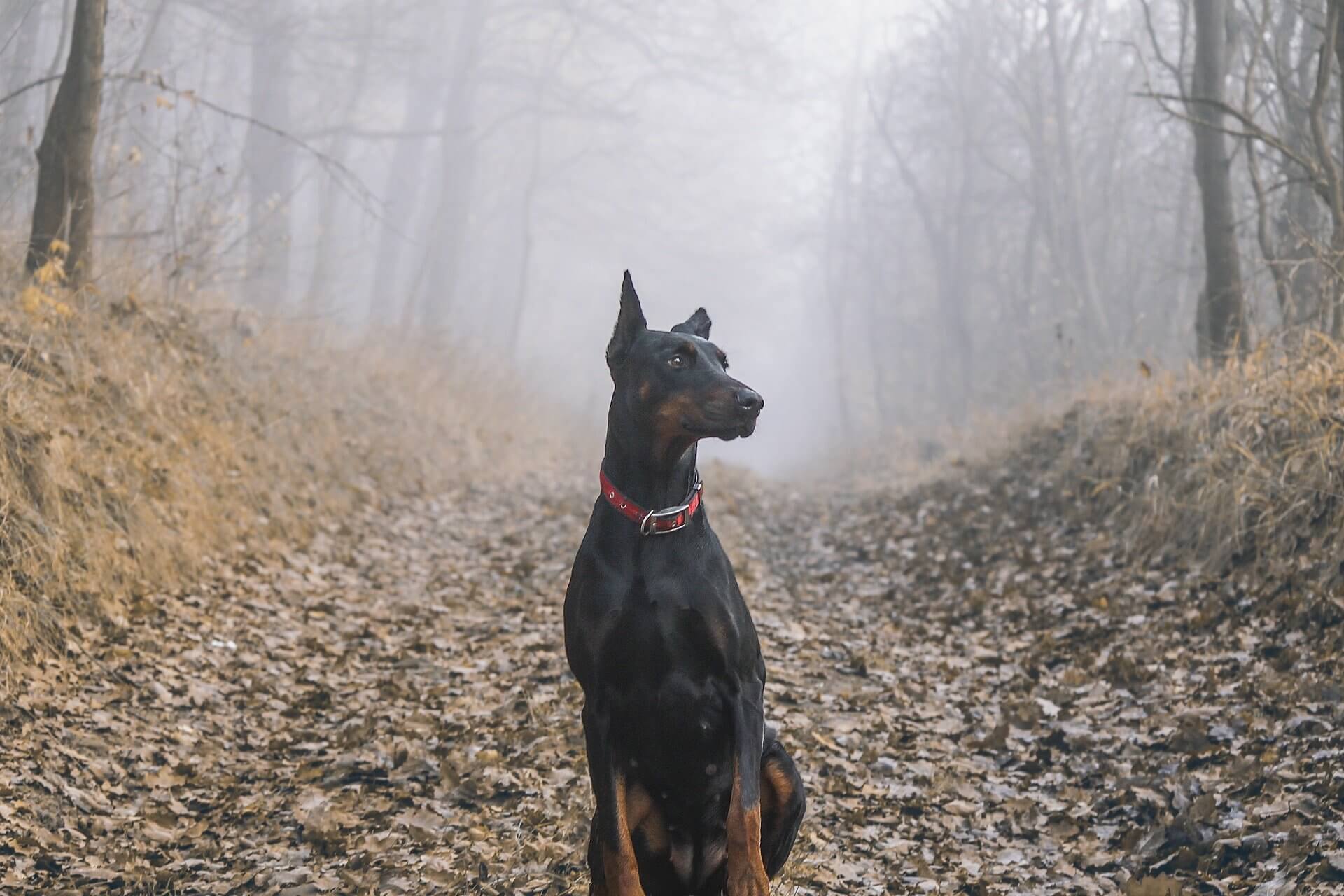
Health issues
Dobermans are generally healthy, and their lifespan is about 10 to 12 years, but, just like all breeds of dogs, they are prone to some health conditions that you should be aware of.
Those conditions are
- Von Willebrand's Disease (a blood disorder where blood cannot clot. Symptoms are excessive bleeding after an injury, nosebleeds, bleeding gums, or bleeding in the stomach. There is no cure for this disease, and the only treatment at the moment is a blood transfusion from healthy dogs.),
- hip dysplasia (inherited condition where the thighbone doesn’t fit into the hip joint),
- progressive retinal atrophy (PRA - an eye disease that involves the deterioration of the retina),
- Wobber's syndrome (causes spinal disorders),
- cardiomyopathy (a heart disorder; disease of the heart muscle, which becomes weak. This disease will eventually result in heart failure because the damaged heart muscle can't efficiently pump blood to the rest of the body.),
- bloat,
- albinism (a genetic condition that affects Doberman dogs. Albinos are sensitive to the sun and can develop numerous health problems, including cancer and eye problems.
These dogs should not be bred), color mutant alopecia (affects blue and sometimes red Dobermans. Symptoms will start to show when your dog is four months to three years old. They will develop brittle hair that is followed by hair loss. This disease is incurable, but some shampoos can help reduce scaling and itching), etc.

FAQ
Yes, Dobermans make great family dogs. They are intelligent and active. They can also be protective and territorial, so it will depend on how you train and socialize your dog.
Dobermans can be dangerous. They are muscular, powerful dogs with strong jaws. They are capable of doing a lot of damage. However, well-bred and raised Dobermans are rarely aggressive or dangerous without any reason.
Dobermans are medium barkers. They can feel protective about their territory, which means they will bark at anyone passing by their fence. It is important to teach your Doberman when it is OK to bark.
Dobermans are naturally very cuddly and affectionate towards their owners. It is their instinct that allowed dogs to thrive and survive. However, strangers should never just walk up to a dog and try to pet them without the owner’s consent.
Dobermans are not harder to maintain than any other large dog breeds. They require slight brushing, teeth cleaning, a bath every 8 - 10 weeks, and plenty of physical activity.
Yes, Dobermans are very trainable. They are people-oriented and love pleasing and protecting their owners. Dobermans are often chosen for service dogs’ roles, which wouldn’t be possible if they are not trainable.
Dobermans don’t hate water. It is not natural to them, but most Dobermans actually love swimming and water activities. Individual dogs might not like it, but it is not a trait exclusive to the Doberman breed.
Getting a puppy should not be based on the owner’s age; it should be based on their schedule. All dogs require time and effort, and if your schedule doesn’t allow you to have a dog, you shouldn’t get it.
Yes, Dobermans are very intelligent and, if properly trained, can be left alone at home. They can behave and wait patiently for their owners.
Liking a bath depends on every dog individually. This is not a trait Dobermans have, and if you teach your puppy that baths are fun, they will love it.
Dobermans might be large dogs, but they can be perfect indoor pets. The only thing you need to care about is that their physical needs are satisfied. Make sure they receive plenty of exercises, and your Dobbie will be an excellent roommate.
Dobermans are very active dogs that require at least 1.5 hours of exercise a day. That can be divided into 3 daily walks with one walk that will include running and exercise.
Dobermans can be dominant, and some first-time owners might have problems controlling them. It is better if a Doberman owner has previous experience, but in the end, it all comes down to how much time a person is willing to invest in their dog.
Most large breeds have a prolonged “puppyhood.” Doberman’s fully mature and calm down at the age of 4.
Like many other dog breeds, Dobermans can enjoy playing with different toys. They love chewing and running, so a toy that can include two of those things will be ideal. They also love treat-dispensing toys.
Doberman breeders
This dog requires a firm owner, and it's not advised for first-time dog owners. Before you contact Doberman breeders, be sure that you will have enough time for your dog. Because this dog breed is widely popular, you can find many Dobie breeders around the world, so you need to be very careful because not all of them are registered and official.
You can search for breeders at the cynology association or Doberman kennel clubs of your country or at the World Dog Finder website, where only official Dobie breeders can join. When contacting the breeder, don’t be afraid to ask all the questions you are interested in. If it's possible, always meet the breeder in person and ask him to show you the parents of the puppies.
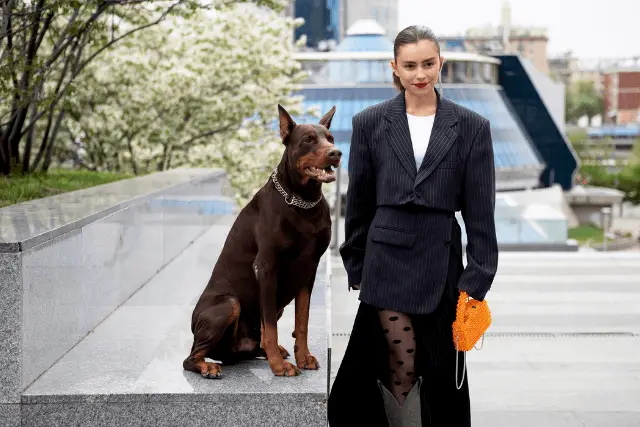
When you bring your new puppy home, your new adventure starts. Start with the training and socialization early. This dog loves its routine - daily walks, feeding, and playing. If you set yourself as alpha from the start, you will not have to worry that this dog will not follow your commands.
If you meet all their needs, you don’t have to worry that this dog will misbehave. On the other hand, if you are thinking of getting this dog only because of his looks and don’t have enough time and/or knowledge to take care of him, you could end up with a misbehaved dog who will get you in a lot of trouble.
With this dog, you are getting an excellent family member who will protect every member if necessary and who will do anything for his family.
World Dog Finder team

Updated at31.08.2023.
Breed History
The Doberman is a breed of dog developed in the 1890s by Karl Friedrich Louis Dobermann, who was the first breeder of this breed. Karl Friedrich Louis Dobermann was a tax collector, and because of the nature of his job, he wanted a fierce and powerful dog to accompany him on his rounds and protect him from all the bandits who might attack him while he was on the road. The results of his early breeding were Doberman Pinscher.
It is believed that the Doberman was a result of a genetic cocktail of breeds, including German Pincer, Rottweiler, Thuringian Shepherd Dog, Black Greyhound, Great Dane, Weimaraner, German Shorthair Pointer, and German Shepherd.
Their creator Karl Friedrich died in 1894, and all knowledge about this dog breed went with him in the grave, but because of his contribution to this breed, the dog breed was named in his honor. German breeders that continued with his work were primarily focused on dog function rather than looks.
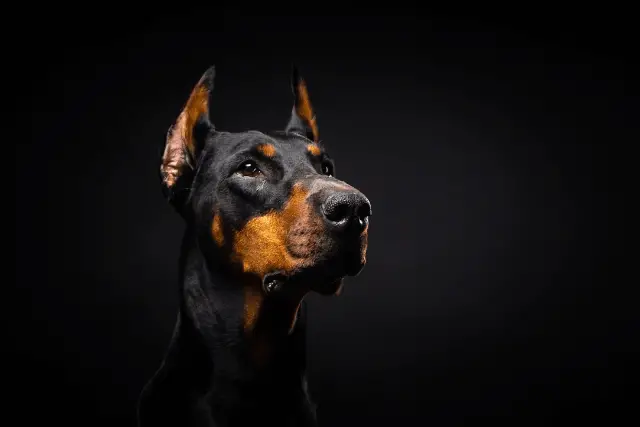
In their mind, they had a vision of a “super dog,” and they were trying to create it. In the beginning, they bred only the strongest, smartest, and quickest dogs, and they succeeded almost too well. At that point, this breed became known as headstrong and aggressive. Otto Goeller, who was a breeder that worked on developing this dog breed, was credited for shaping Doberman into a more usable dog.
German Kennel Club recognized this dog breed in 1900, and around 1908 Doberman was brought to the US. One legend says that one of the first Dobermans who was exhibited at shows won three consecutive “Best In Show” titles before a judge dared to open his mouth and check his teeth.
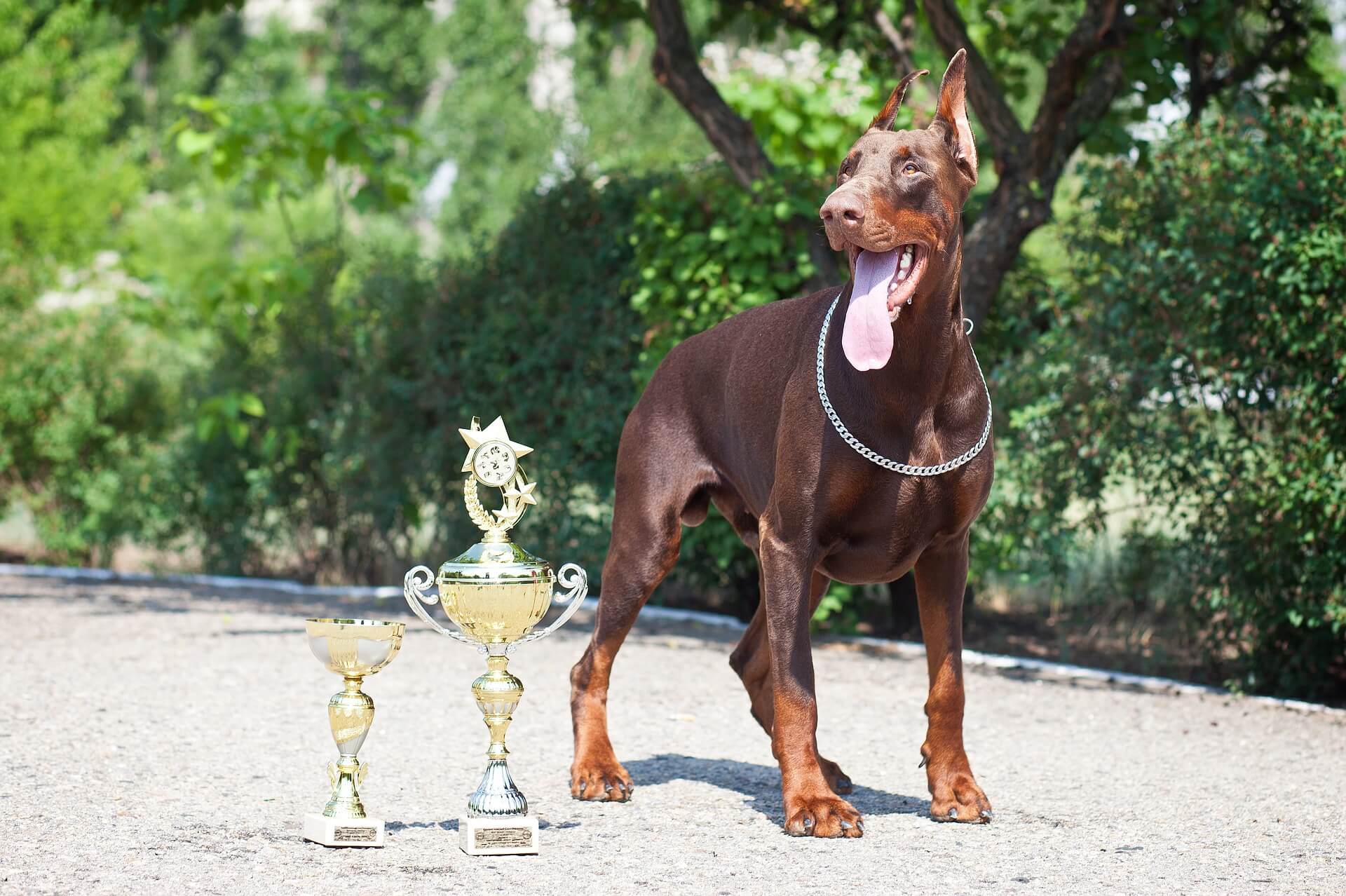
In 1921 was, formed Doberman Pinscher Club of America and a year later, the breed standard that was written in Germany was adopted. The next 15 years of this dog breed were critical for their further development. During World War I, many Doberman dogs disappeared because the people couldn’t afford to have such a large dog. The ones who survived were owned by the police, military, and wealthy people.
After World War I, the best dogs were all brought to the US, and many think that because Americans brought this dog breed to the US, it wasn’t extinct. In later years, Doberman breeders worked to sharpen their personality, and they had good results; although this dog is very protective of their family, they are also known as affectionate companions.
FUN FACT: Doberman named Cappy alerted US Marines that Japanese soldiers were approaching and, with that, saved the lives of 250 soldiers.
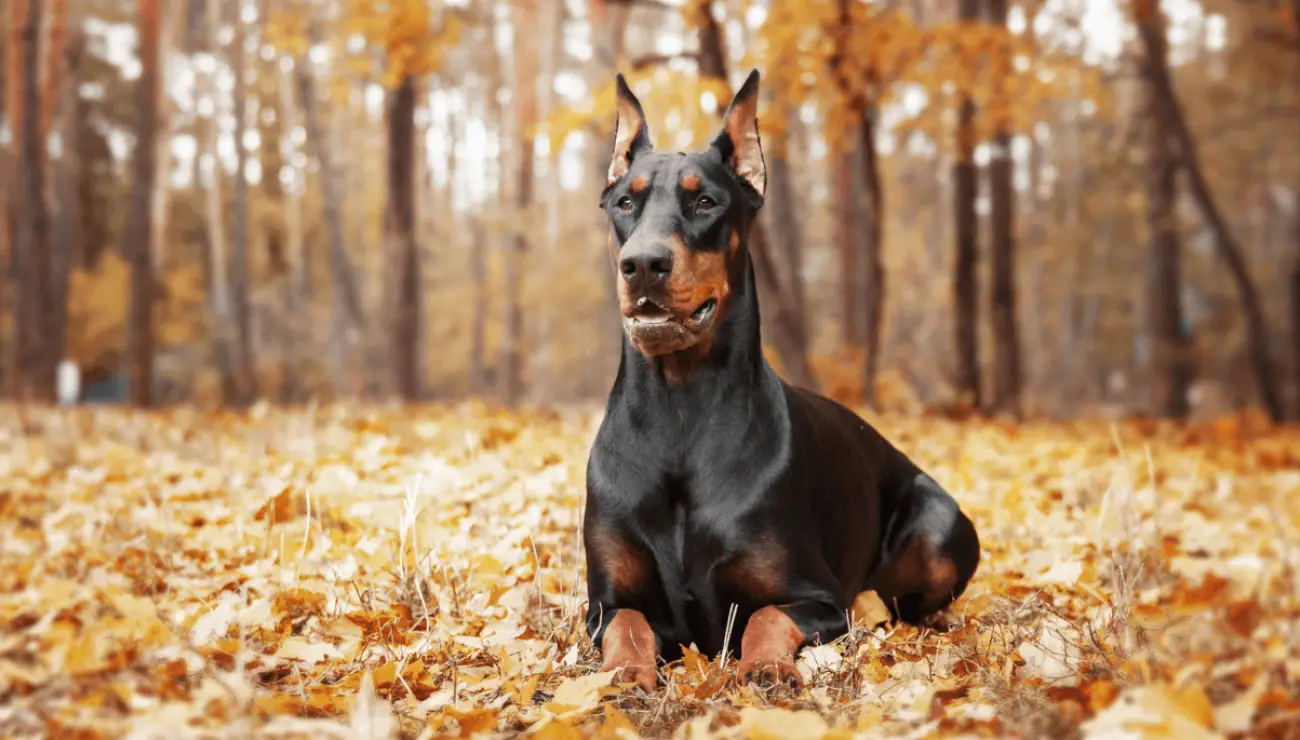
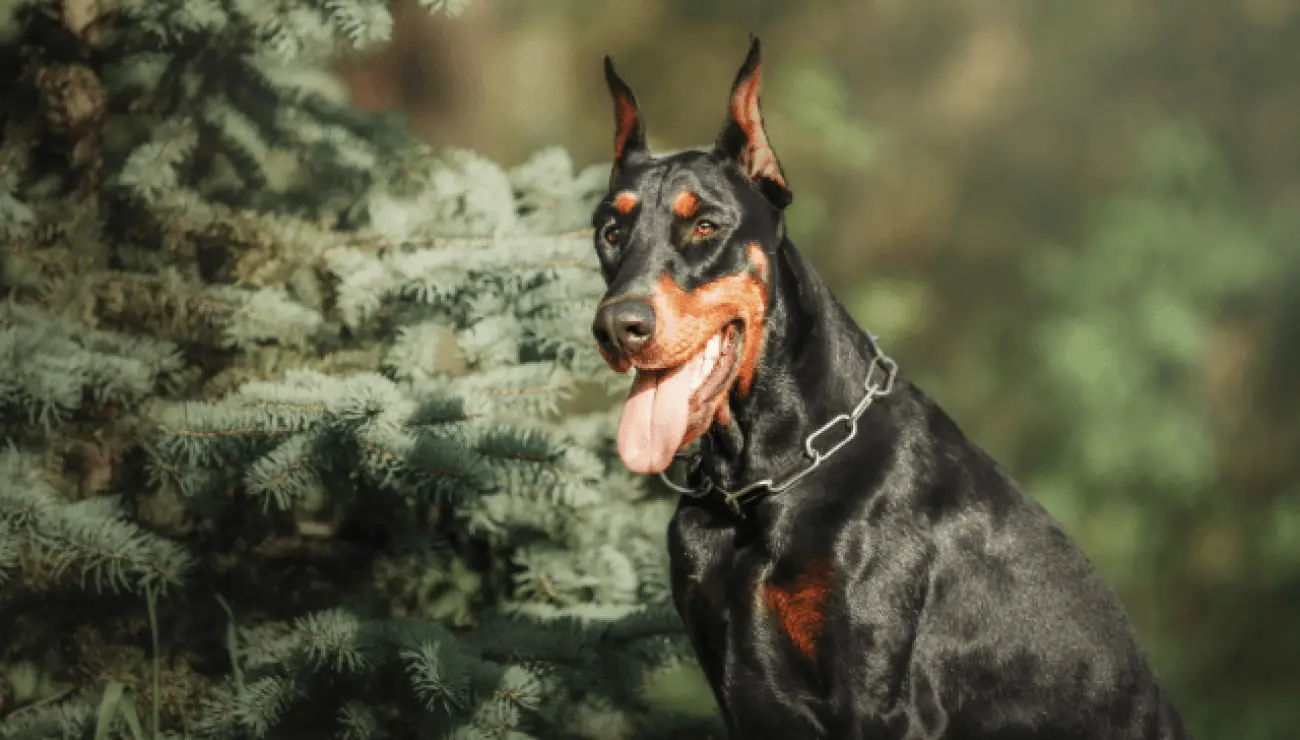
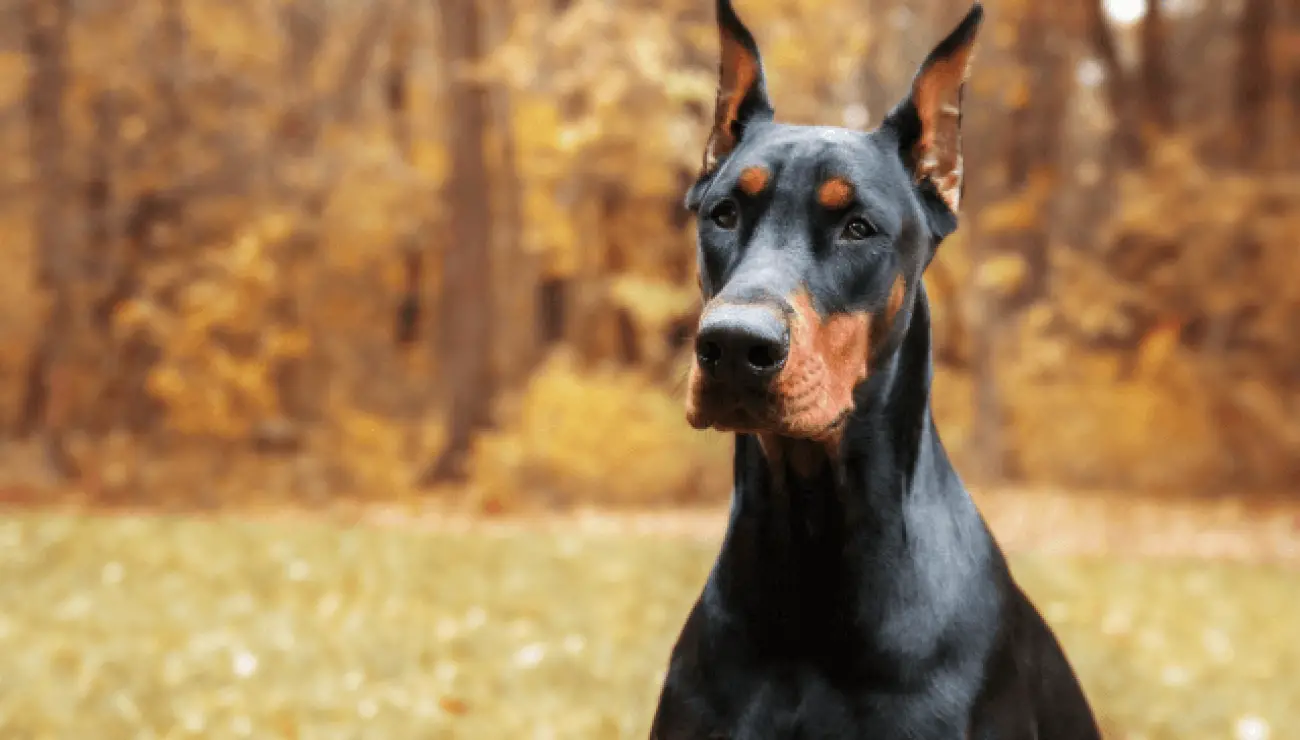
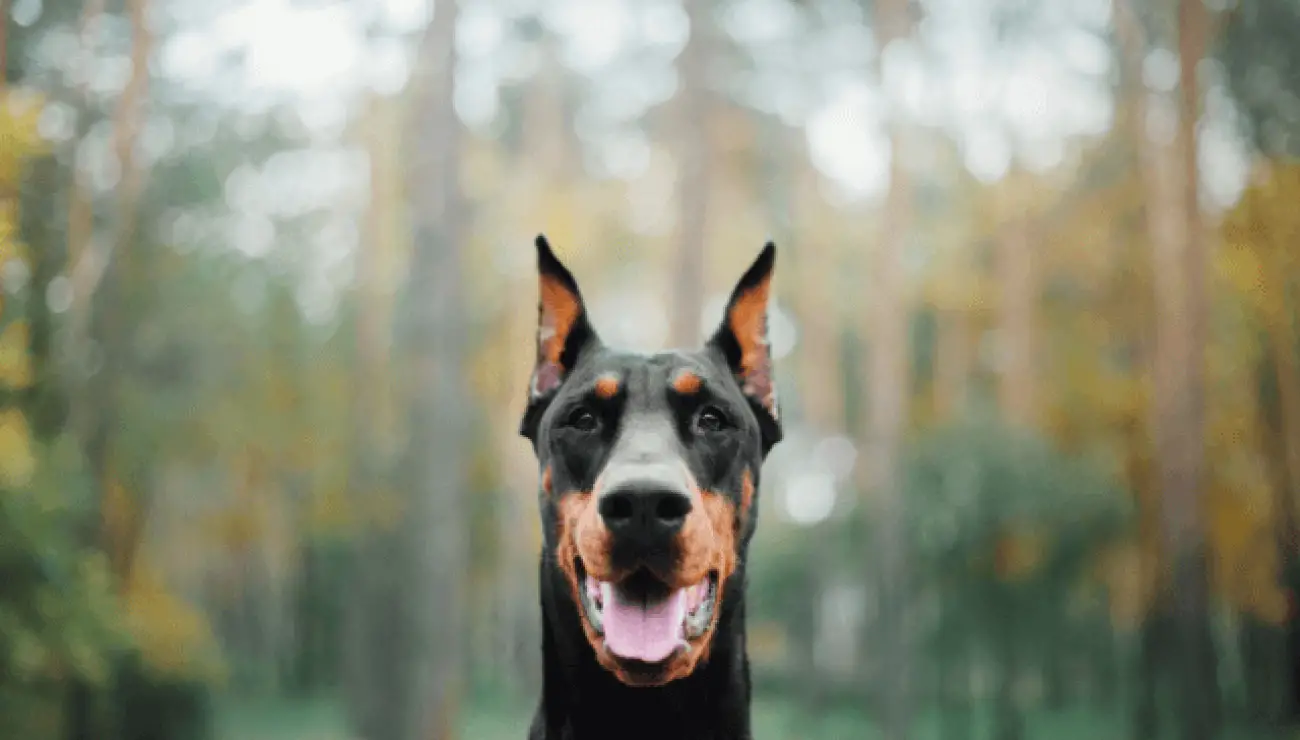
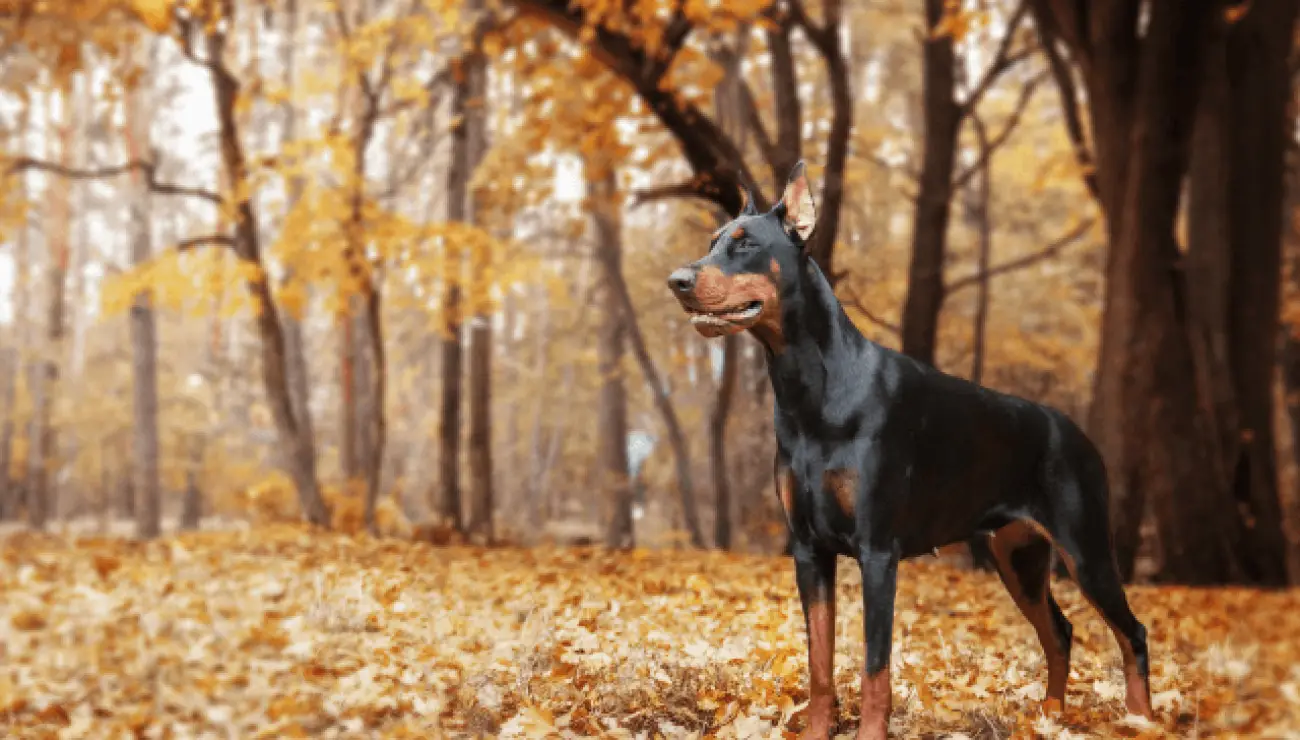
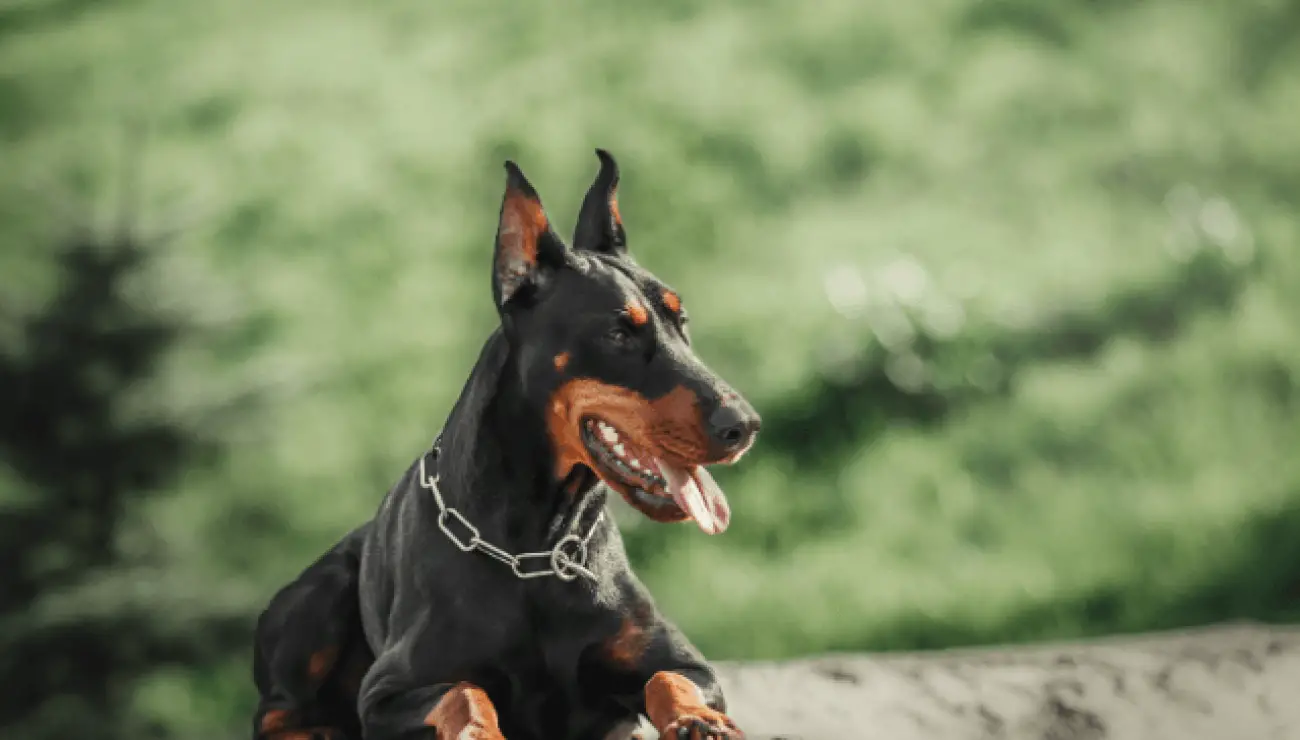
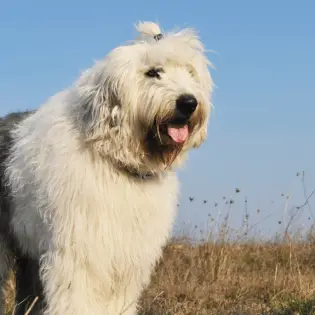
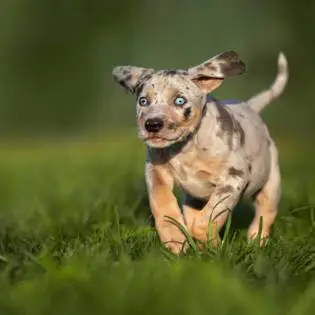
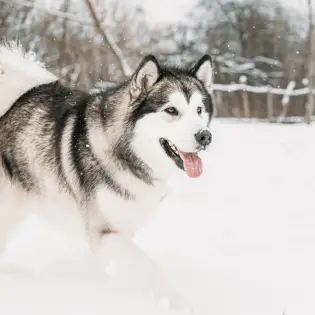

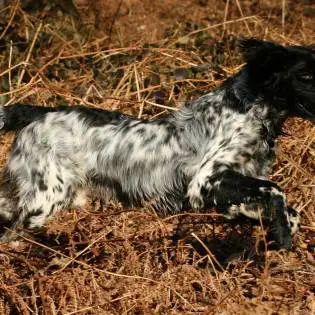


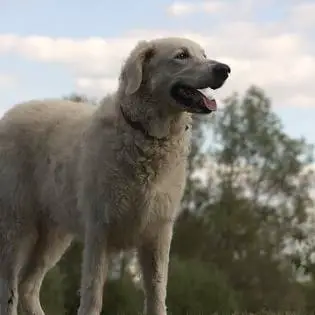



Share